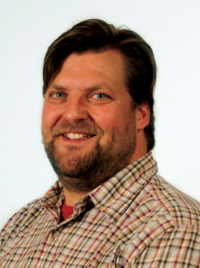Derek Arndt
As our Society enters its second century, we face two strategic challenges common across many scientific societies. One is the ongoing, rapid transformation of the information economy. Emergent technologies, new capacities, and growing expectations among our various constituencies have accelerated an already evolving information services landscape. The Society now serves a constituency awash in information from a multitude of sources. Increasingly, our professionals—even many researchers—are asked to incorporate or distill, rather than create, information. Another challenge is to invigorate the recruiting and retaining of young professionals, and of fostering a membership, and a leadership, that best reflects the diversity of the broader society we serve. The composite voice that guides our work should carry the richness of a robust and growing membership, which will in turn reflect the wondrous complexity of our constituencies. Reflecting on my 10 years stewarding the Society’s State of the Climate series, I see it as a guide to inform our approach to these challenges. Its successes were driven by increasing the disciplinary, demographic, geographic, and generational diversity of its authorship and leadership; gathering increasingly comprehensive sets of information from multiple disciplines; distilling that information into a core set of essential takeaways; and honoring the rigor built into it by prior generations. These actions were intentional, not accidental, and the result of shared goals across generations of leadership, and intentioned communication across all of the above. As Councilor, I will enthusiastically advocate for improved strategic communication across programs and member cohorts; accelerated work with related societies toward shared solutions for meeting strategic challenges; and an inward and outward emphasis on developing and promoting, respectively, our members as information brokers serving a diverse set of constituencies. I appreciate the opportunity to share my goals alongside such worthy and impressive candidates, and look forward to our second century.
Derek Arndt
Derek Arndt is the chief of the Climate Monitoring section at NOAA’s National Centers for Environmental Information in Asheville, NC. The section is responsible for monitoring, assessing, and reporting the status of the climate system, and is the operational home of drought.gov and NOAA’s Billion Dollar Disasters assessment. Deke has been the lead or colead editor for the last nine issuances of the State of the Climate series, published annually in BAMS. The series now incorporates input from more than 500 authors from about 60 countries each year; its chapters are edited by scientists on three continents. He is the cochair of the U.S. Global Change Research Program’s (USGCRP’s) Indicators Interagency Working Group (IndIWG). The IndIWG develops and curates, from USGCRP’s 13 member agencies, indicators of climate change, variability, and related societal factors. These indicators draw from, and support, the quadrennial National Climate Assessment. Deke has served on several expert or technical teams commissioned by the WMO’s Commission for Climatology that dealt with facilitating the development of national climate indicators for WMO’s national hydrometerological services, and developed curriculum and strategy for building expertise within those services. Before joining NCEI in 2009, Deke was a service climatologist with the Oklahoma Climatological Survey (OCS). At OCS, he implemented early versions of the Oklahoma Mesonet’s automated and manual data Quality Assurance program and developed climate monitoring tools used by decision-makers and media in the state. He managed the OK-First Public Safety outreach program, which provides training and real-time weather data for public safety officials and agencies in Oklahoma and neighboring states. As the associate and acting state climatologist, he advised state officials on situations related to drought and wildfire. He holds B.S. and M.S. degrees in meteorology from the University of Oklahoma.
